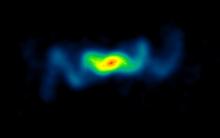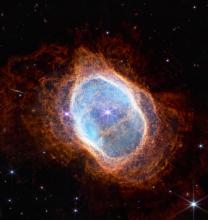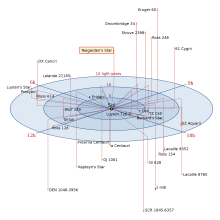Listen to today's episode of StarDate on the web the same day it airs in high-quality streaming audio without any extra ads or announcements. Choose a $8 one-month pass, or listen every day for a year for just $30.
You are here
Capricornus
The roster of constellations includes some weird and wonderful creatures. There’s a dragon, a unicorn, and two centaurs. But perhaps the weirdest of all is Capricornus, the sea-goat. It’s half goat and half fish.
In Greek mythology, it’s associated with the god Pan, who was half goat and half man. The story says that he was about to be attacked by the monster Typhon, so he jumped into the water to escape. At the same time, he tried to transform himself into a fish to speed his getaway. But he botched the spell, and turned his human half into a fish, but kept the half that was a goat.
The constellation is low in the southern sky as darkness falls at this time of year. Its brightest stars form a wide triangle. None of the sea-goat’s stars is especially bright, though, so you need a fairly dark sky to make them out.
The brightest forms the left point of the triangle. It’s known as Deneb Algedi — “the tail of the goat.” It’s actually a system of at least two stars. The leader is about twice as big and heavy as the Sun, and shines several times brighter. The other is quite similar to the Sun.
The two stars orbit each other about once a day. As they do so, each star passes in front of the other for a bit. When the fainter star crosses the brighter one, the system’s overall brightness drops by about a quarter. That’s just enough for a skilled observer to notice with the eye alone — a slight flicker for one of the night sky’s oddest creatures.
Script by Damond Benningfield





